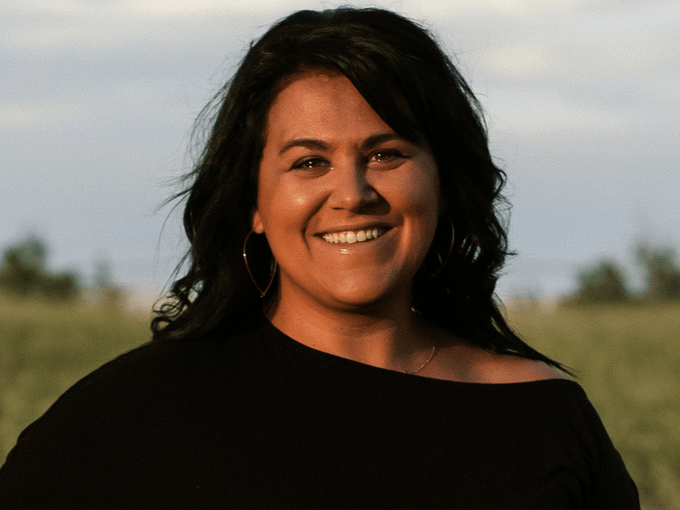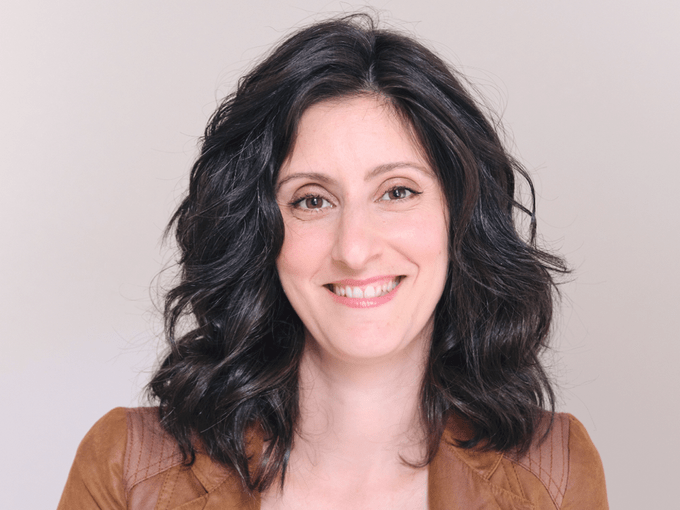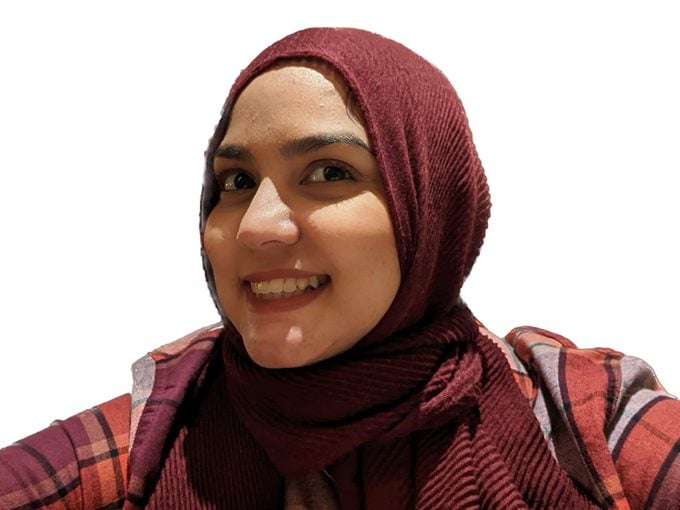We Need to Talk More About Fertility
Here, women open up about their fertility journeys in an effort to help and support others facing barriers to build the family they desire.

There are many ways to build a family, and it’s important to continue raising awareness to normalize that.
“Many Canadians are affected by fertility challenges,” says Carolynn Dubé, executive director of Fertility Matters Canada, “And these statistics don’t account for aspiring single or LGBTQ+ parents, all with the same goal of building a family.”

Fertility Matters Canada (FMC) is the leading national patient-focused organization providing free support, public education, and advocacy for equitable access to fertility care in Canada. Fertility Matters Canada supports those who are considering their future fertility, are currently on a fertility journey, are facing childlessness after infertility, have experienced a miscarriage or loss, or are seeking support or information.
There are many factors that can impact the journey to parenthood — and every journey is different, each with a unique set of challenges, an overwhelming amount of information, and difficult decisions to be made. It can lead to people going through this process feeling lonely along the way, not to mention emotionally and physically drained.
June is World Infertility Awareness Month, a globally celebrated moment that focuses on increasing awareness on numerous infertility issues faced by aspiring parents in Canada and across the globe. Organizations like Organon Canada, a leading women’s healthcare company, and Fertility Matters Canada are working to spotlight the stories of aspiring parents, sharing their fertility challenges and lessons learned. “We’re committed to turning the infertility narrative on its head and redefining (in)fertility to put a positive spin on an often-heavy conversation and to be more inclusive of all fertility stories and journeys,” says Dubé.
Anne-Marie Luca and Tayyaba Mohsin are two Canadian women working to break the stigma that prevents people and families from having open conversations about fertility and seeking the support they need.
Anne-Marie Luca
Anne-Marie is the founder of Info-Procreation, an organization that supports people experiencing infertility and members of the LGBTQ+ community on their fertility journey. Her personal fertility journey began when she was diagnosed with cervical cancer and needed a hysterectomy at age 35. After her procedure and cancer treatment, surrogacy was her only option to conceive a biological child. Surrogacy is anything but a straightforward process, and Anne-Marie was given only bits of information. So, she completed hundreds of hours of her own research to make her dream of having a family come true.

Tayyaba Mohsin
Tayyaba is a first-generation visible Muslim immigrant and an advocate for accessible fertility care and decreased stigma about infertility, especially for women of colour. She is also the founder of the OPS Fertility and Pregnancy Loss Group, an informal, employee-run group for all Ontario Public Service (OPS) workers who are seeking support for themselves or would like to join as allies. The group’s aim is to be a safe place for support, to consider potential improvements to OPS policies, and to promote understanding and provide education in the OPS. Tayyaba was diagnosed with Polycystic Ovarian Syndrome (PCOS) in her twenties, and experienced five years of infertility and pregnancy loss before undergoing IVF and an auto-immune treatment. She was able to conceive her daughter in January 2023.
Here, they open up about their journeys to parenthood.
What are some of the barriers people face in accessing fertility care?
Fertility clinics are busy—and waiting for an appointment can be stressful. Anne-Marie says her journey took almost two years, and even after getting into a clinic, she wasn’t given the attention she needed. “When my husband and I were in the middle of our treatments and had questions, it was tough to get a hold of the fertility team at the clinic because they were so busy,” says Anne-Marie. “That was a source of immense stress.”
Another major barrier to accessing fertility care? Expense. Tayyaba says when she and her husband first started trying to conceive, they were both in school, and the provincial plan didn’t cover fertility care for international students. “We struggled to find doctors and healthcare that were accessible and not an out-of-pocket expense to us,” she says. “Often there are surprise costs too like travel, missed work and unexpected treatment costs – they all add up and few are covered by the province.”
How can fertility care providers be more inclusive to all aspiring parents?
There needs to be greater awareness of how fertility affects different groups of people. “When we talk about fertility, we’re usually talking about reproductive fertility and missing a group of individuals in the LGBTQ+ community,” says Anne-Marie. Fertility care providers need to be more conscious of this and offer the resources necessary to assist with all types of fertility journeys.
As a member of the South Asian community, Tayyaba doesn’t feel represented by the fertility images and messaging typically seen in social media posts, brochures or posters on a clinic wall. “Fertility has a very white, straight face to it,” says Tayyaba. “It makes you feel like you’re facing this alone.” Tayyaba further notes that cultural and anti-racism competency and capacity training for all fertility care employees would go a long way in improving the fertility experience for people of colour, LGBTQ+ people and other underrepresented groups.
How can people trying to build their families find community?
Many people who have encountered challenges with starting a family are opening up about them via in-person and online communities. Anne-Marie started her fertility support group, Info-Procreation, after a psychologist at her fertility centre suggested she help other couples who are interested in having a baby via surrogacy. “Considering the lack of support groups, I wanted to provide guidance and support to individuals who struggle with infertility and those who identify as LGBTQ+.”
Tayyaba recommends reaching out to your fertility clinic, most of which have existing Facebook pages where people can find support and resources. Reaching out to your reporting manager, HR, or your union representative can be another important source of support. “You just can’t go through this experience without support from your workplace,” she shares. That’s why Tayyaba founded the OPS Fertility and Pregnancy Loss Group, a support group for Ontario Public Service employees.
What supports do you wish had been available when you began your journey?
Overall, people going through fertility challenges need more accessible information about their options and what they can expect—and they need healthcare providers to educate them on a range of fertility options. “Surrogacy is not very common or regulated, and there’s little reliable information available,” says Anne-Marie who had to do her own extensive research to get the information she was looking for.

Tayyaba wishes she had access to a fertility specialist earlier on in her journey. In addition to PCOS, Tayyaba also suffered from auto-immune related infertilty, which is experienced by only a small percentage of the fertility population. “I had to advocate for myself, consult with more than eight doctors, read numerous books and articles and speak to many fertility specialists to get answers,” she shares. It was a collaborative approach between her fertility doctors and reproductive immunologist that helped her to conceive her daughter.
There’s also a need for mental health support. “Providers need to prioritize the mental toll this journey can take on a person,” says Tayyaba. “It affects partner relationships, family relationships, and merges into all areas of life between work and home.”
Are there any moments of joy in your fertility journey you would like to highlight?
No matter what your journey looks like, there can be pleasant surprises along the way. Anne-Marie was amazed that despite having her son via surrogate, she was able to breastfeed.
“The amount of support I have received through friends found via support groups and at work is something I treasure the most,” says Tayyaba. “They celebrated my wins and supported me immensely when I was going through a hard time.”
For more information about Fertility Matters Canada and infertility support in Canada, visit Fertility Matters Canada at fertilitymatters.ca.





